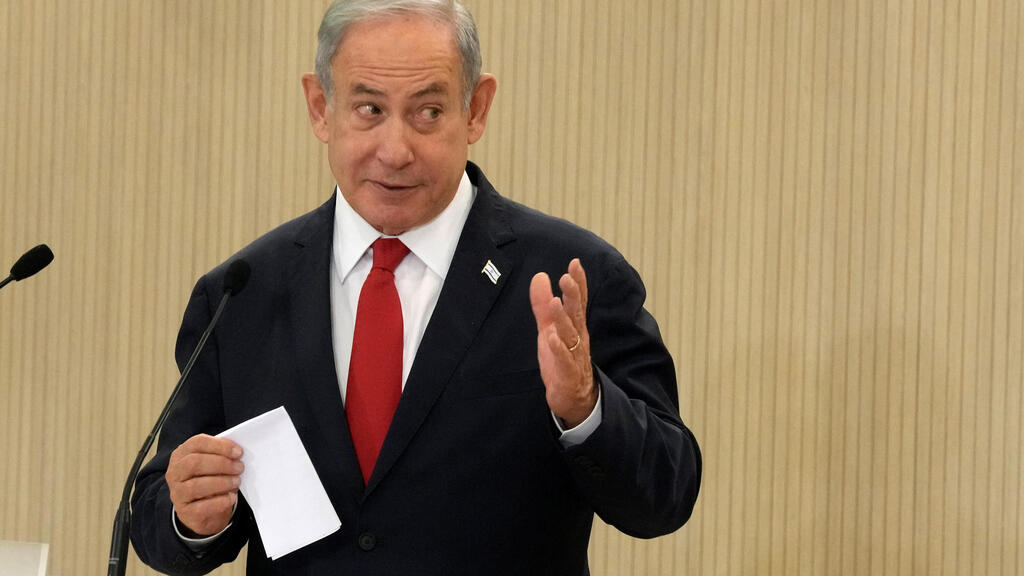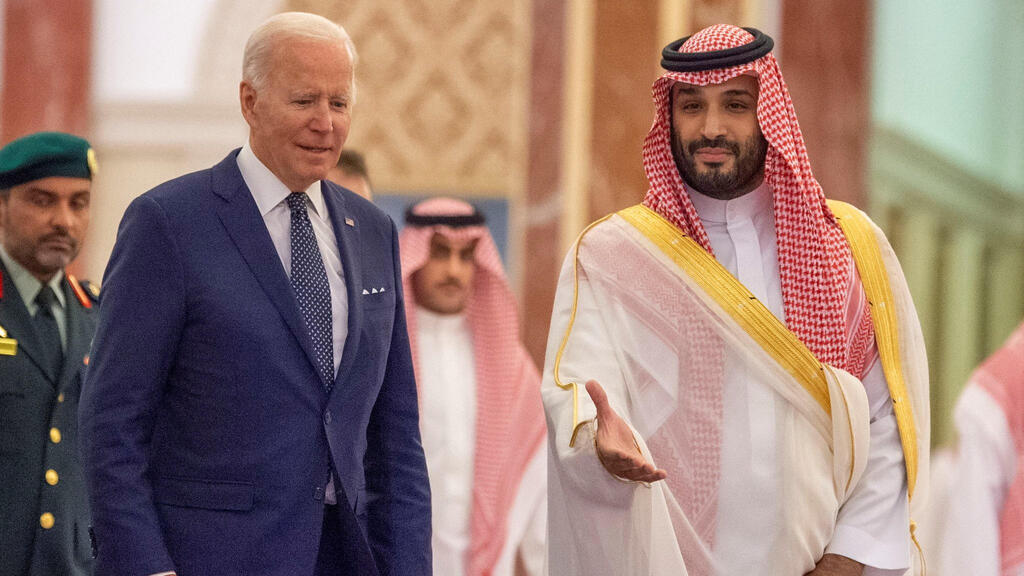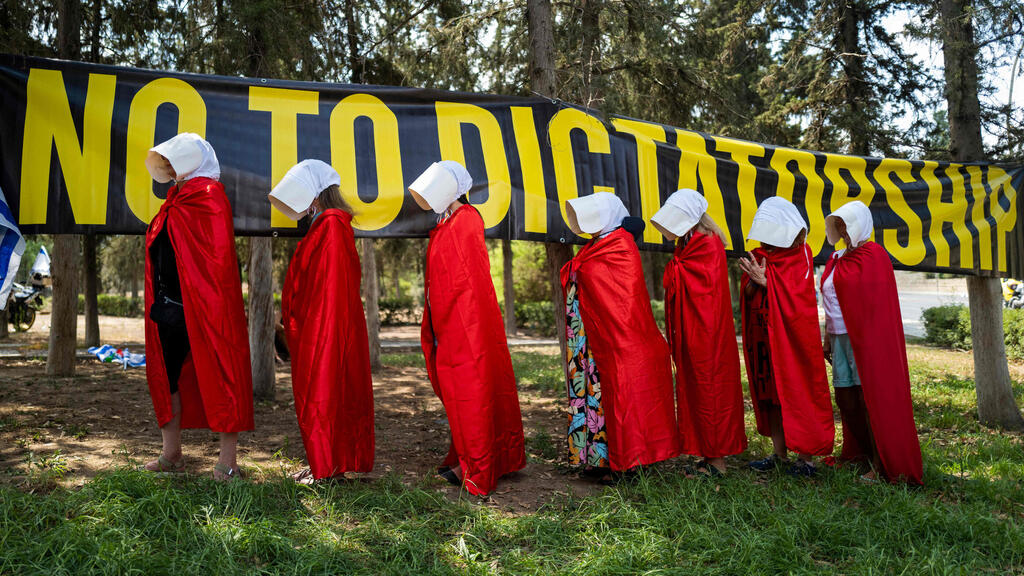Getting your Trinity Audio player ready...
A senior official traveling with Prime Minister Benjamin Netanyahu in Cyprus said on Monday that "Israeli security would not be sacrificed, "following the Saudi Arabian demand for a civilian nuclear reactor, as part of their agreement with the U.S. that would lead to normalized relations with Israel.
Read more:
The official said there were other obstacles in the way of an agreement, other than the question of the reactor, and indicated that he "could not make any assurance that they would all be overcome."
3 View gallery


Prime Minister Benjamin Netanyahu during a visit to Cyprus
(Photo: Petros Karadjias/Pool via Reurters)
The official spoke after Strategic Affairs Minister Ron Dermer, a close ally of the prime minister, said the Saudis had the option of turning to China or France to obtain a reactor.
“[The Saudis] could go to China or they can go to France tomorrow, and they could set up — ask them to set up a civil nuclear program and to allow for domestic enrichment. They could do that tomorrow if they wanted to. So the question that I asked myself is, if the US is involved in this, what will that mean 10 years down the road, 20 years down the road, 30 years down the road, and what’s the alternative?" Dermer said in an interview.
The official said Dermer was right and did not say that Israel agreed to Saudi Arabia enriching Uranium. "He did not say that he was okay with that he was just stating facts," the official said.
He said he believed that the question of concessions to the Palestinians, that would be required as part of the deal with the Saudis, would be resolved. "This is not the first time the matter is discussed and if we achieve peace, you will see how it was resolved," he said.
He hinted that whatever is acceptable to the prime minister, would be acceptable to his ministers, including far-right Bezalel Smotrich and Itamar Ben-Gvir who have opposed most measures that would benefit Palestinians, proposed to the cabinet.
"If the prime minister is satisfied with concessions to the Palestinians, there will be a firm majority in the government for them and a firm majority in support of a deal with Saudi Arabia," the senior official said.
"This is a joint effort of three nations interested in the deal: Saudi Arabia, the United States and Israel. There are four or five variables that are not very complicated. We need the magic number of 67 Senators first."
National Unity leader Benny Gantz said he would not join a Netanyahu-led government even in order to secure a deal with Saudi Arabia. He would, he said, support the government from the opposition if such an agreement was reached.
Meanwhile, there were increasing reports on Monday, of efforts to reach an agreed compromise on the judicial legislation advanced by Netanyahu's government which has caused mass protests that have been taking place for the past 35 weeks.
According to the reports, President Issac Herzog has been mediating between Gantz and Likud Party officials to reach an agreement that would include a halt to legislation for a period of 18 months, no change to the makeup of the panel that selects judges, and a moderation of the bill already passed, the limits the ability of the Supreme Court to block laws it deems undemocratic.
The Likud party issued a denial claiming there was no agreement to such conditions while others in the party said word of the negotiations was leaked in order to prevent an agreement.




